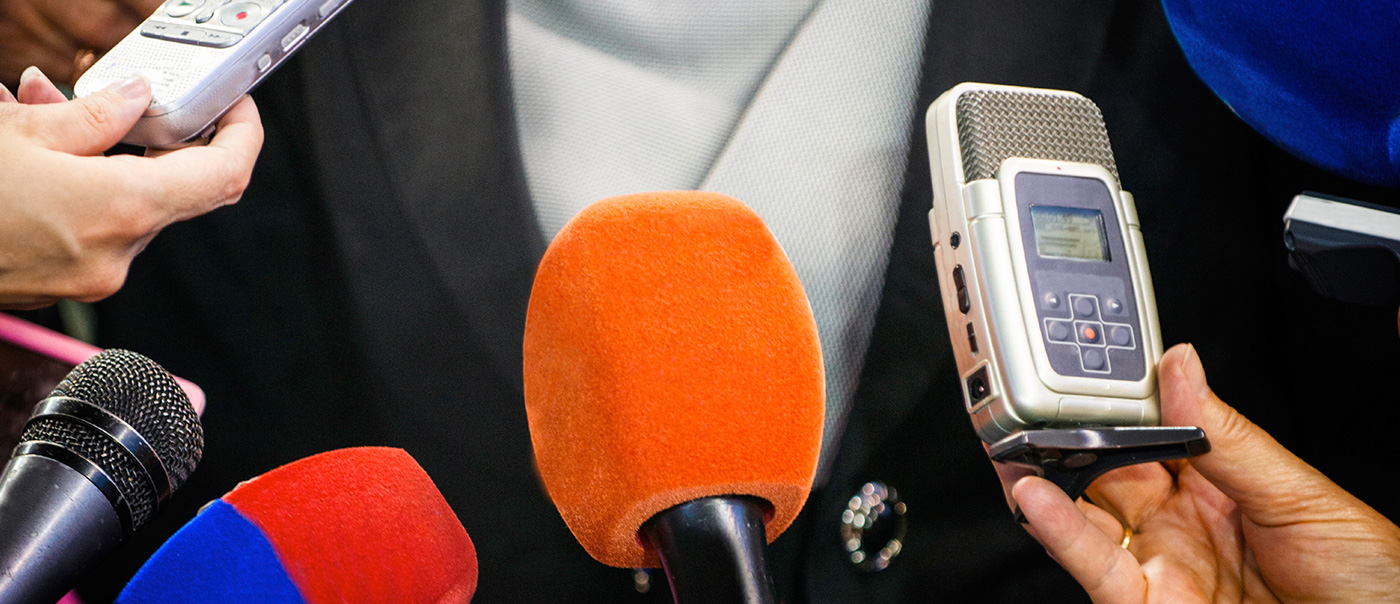Contrary to what you may think, journalists aren’t always on the attack. In fact, although there are some situations you may want to avoid, it can be beneficial for you to have your name or brokerage featured in a news story.
If you’re unsure how to handle public exposure, here are a few tips to keep in mind should a member of the media contact you.
Why do they want to speak to me?
There are many reasons why reporters reach out: to recognize you or your office for an award, to pick up a press release you sent about a project or to get your input as a subject matter expert on a story.
Often, when a journalist contacts you as an expert in your field, they may just be hoping to get in touch with someone from the local Board or the provincial or national Association to speak on the record. Most often, they’ll use a “shotgun” approach when looking for comments, making a lot of calls and leaving many messages in the hopes someone will agree to an interview or their call is returned before their deadline.
Of course, your local Board, provincial and national Association may choose not to respond to the reporter or to decline for a variety of reasons … typically because the issue doesn’t fall under their particular area of responsibility. I’ve lost count how many times a reporter has requested to speak with someone at CREA only to inform them we are not a licensing body nor are we responsible for the laws that regulate the sale of real estate anywhere in Canada. This leads me to my second tip …
Forewarned is forearmed
The most important advice I can share is that you CAN decline an interview request.
Of course, before agreeing or declining to be interviewed, you can always ask for more information. Remember, this is a negotiation! The reporter wants someone to speak on the record to one side of an issue and you have to agree in order for the interview to take place.
But keep in mind, there is no such thing as “off the record.” You may feel as if the journalist you’re speaking to is trustworthy but remember, if you’re saying something “off the record,” chances are it’s a juicy bit of information the reporter may want to run with.
Questions, questions, questions
Before making your decision, you should be asking a number of questions of your own:
- Is this for a local, provincial or national media outlet? Some media organizations farm out parts of a story to local outlets.
- Is this live or taped? Only ask this one if the request is coming from a TV or radio station.
- What exactly is the story you’re working on and how do I fit in?
- Who else are you speaking to for this story?
- How much time will you need?
As part of your negotiation, you can specify which topics or questions you’re willing to address … or not. If you are concerned about an issue, make sure you inform the journalist why you won’t address them prior to the interview (for example, if it’s a regulatory/licensing issue, they should be speaking to the regulator).
Preparation is key
You should take a little time and prepare some speaking points to address the themes/issues the journalist will be asking about.
I can’t overstate you should also rehearse those answers – the more times you practice (especially in front of a mirror), the more your points will sound conversational as opposed to forced or scripted.
Interview time
One of the greatest pieces of advice I’ve received in a training session is to answer the question that is being asked, not the one you think they’re asking. Listen carefully to the question, pause for effect and answer what was asked.
And the most important point to remember is that as the subject of the interview, your story – the one you want to tell and prepared for – should be the focus of the article.
Remember that as a member of the REALTOR® Community, you never have to speak on the record on behalf of the entire industry. There are many spokespeople who have been trained to do just that and are supported by folks like me.




